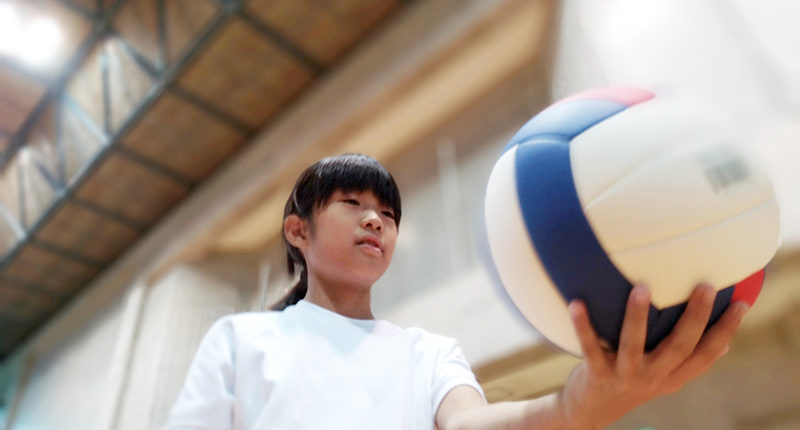Sport for Life to Reshape Youth Volleyball Competition Structure in British Columbia

Sport for Life Society has begun a comprehensive review of Volleyball BC’s (VBC) youth competition system, a three-month initiative responding to an extraordinary 33% growth in teams, athletes, and coaches over the past two years. The project aims to develop innovative solutions that will serve British Columbia’s expanding volleyball community while ensuring high-quality, affordable opportunities remain accessible to all participants.
The dramatic expansion has created unique challenges for VBC, which serves over 15,000 registered members, including almost 9,000 youth players in the competitive club system. These challenges are particularly complex given British Columbia’s vast geography and increasingly limited access to facilities.
“British Columbia’s volleyball landscape presents unique opportunities for innovation,” says Richard Way, CEO of Sport for Life Society. “By reimagining our competition structure now, we can create sustainable systems that will serve the next generation of athletes across our diverse province.”
Sport for Life’s review process combines rigorous analysis with extensive community engagement. Having completed the initial situation analysis, the team is now examining existing competition calendars, formats, and structures while researching best practices from other sports and nations. A key component includes a thorough inventory of competition facilities in partnership with the BC Recreation and Parks Association.
The review process is highly collaborative, incorporating insights from key volleyball leaders across Canada. The team will conduct detailed interviews with Emma Gibbons, CEO of Volleyball BC; Adrian Goodmurphy, Head of Programs and Pathways at VBC; Sandra de Graaff, Director of Domestic Competitions at Volleyball Canada; and several other prominent figures in Canadian volleyball development.
“We need to think differently about how we deliver volleyball competitions in BC,” explains Tom Jones, Director of Community and International Engagement at Sport for Life. “Success means creating systems that work as effectively for a small club in northern BC as they do for a large program in the Lower Mainland.”
The project emphasizes several innovative approaches:
- Creating scalable competition systems that can accommodate continued growth
- Developing region-specific solutions that address BC’s unique geographic challenges
- Optimizing facility usage and competition schedules
- Building developmentally appropriate pathways for all skill levels
- Ensuring safe, inclusive, and welcoming environments
A distinguishing feature of this review is its comprehensive consideration of modern sport challenges. The team is addressing four key areas of innovation:
- Meaningful Competition Design: Developing competitions that provide close, unpredictable results and support learning, specifically matched to competitors’ skill levels. This includes examining how to structure events so participants can perform and test skills they’ve learned in training.
- Environmental Sustainability: Creating a framework for assessing and minimizing the environmental impact of competitions, particularly important given BC’s geographic spread and travel requirements.
- Artificial Intelligence Integration: Examining the role of AI in athlete development, game analysis, and competition management while addressing important considerations about data privacy and appropriate technology use at different development stages.
- Safe Sport Framework: Building on VBC’s existing resources for concussion protocols, physical injury prevention, and maltreatment prevention to create comprehensive safety guidelines specifically for competition environments.
“We urge sport organizations to adapt to new realities,” notes Kabir Hosein, Director of Strategic Initiatives at Sport for Life. “From climate considerations affecting travel to the role of technology in competition, we’re building a framework that prepares VBC for future to be ready for the challenges while enhancing the athlete experience today.”
The consultation process is currently underway across BC’s six regions: Kootenays, Okanagan, Fraser Valley, Lower Mainland, Vancouver Island, and the North. Through surveys, town halls, and focus groups running through December, the team will gather input from the province’s 72 clubs and 574 competing teams. This extensive engagement will ensure the final recommendations reflect the diverse needs of BC’s volleyball community.
To support implementation, Sport for Life will develop:
- A VBC-specific Competition Review workshop
- Training programs for competition hosts
- Learning Facilitator training for VBC staff and volunteers
- Resources to support the new competition structure
Final recommendations are expected in May 2025, with implementation planned for the 2026 season. The new framework will aim to create a competition system that is not just scalable and efficient, but truly reflects the principles of quality sport: developmentally appropriate, safe, inclusive, and well-run.
For more information about Sport for Life’s work in competition review and Long-Term Development in Sport and Physical Activity, visit sportforlife.ca.

